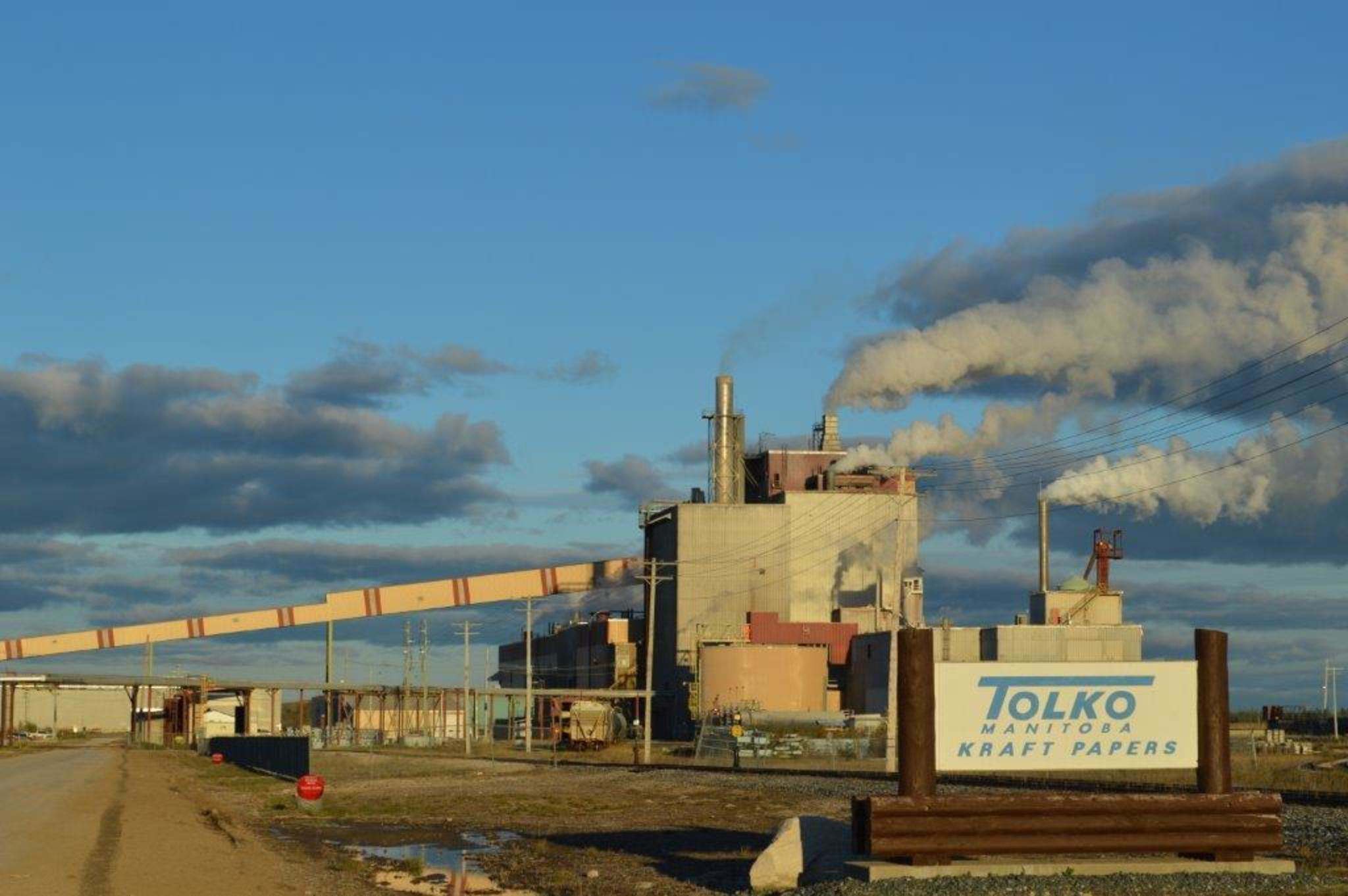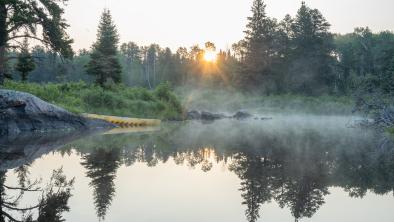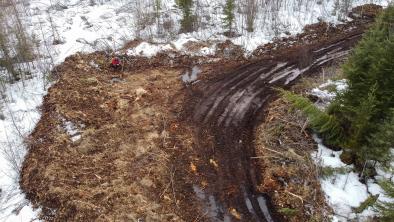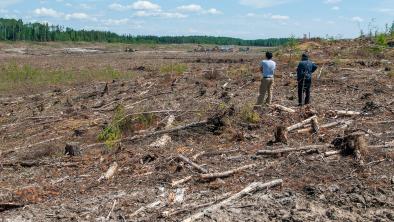Time to get off the logging roller-coaster

By Eric Reder
Winnipeg Free Press, October 11, 2016
For 10 years, I’ve wandered through our northern forest, walking through clearcuts auditing the logging operations, or bushwhacking along rock ridges inspecting woodland caribou habitat. Logging is taking a lot out of these woods, and it’s clear this ecosystem can’t handle the impact.
Tolko is closing its paper plant in The Pas, stating the mill just isn’t profitable, and buyers are lining up to take over the logging operation. But before more clearcutting is green-lighted, we must make sure our wild forest and wild species are given the space they need to thrive and logging operations in the north are ecologically and economically sustainable.
Logging mills across this country have suffered similar fates to Tolko’s kraft paper mill. They are closing because they’re uneconomical — just like Tembec’s paper mill in eastern Manitoba in 2010. One component of this declining profitability is markets: either a glut of product drives prices down or changing consumer habits causes demand to drop.
But there is a bigger problem that has played out for decades in Canada.
The reasons for the Tolko mill closing should not come as a surprise. In the logging industry, we are seeing the mills built in decades past are too big and need a larger amount of wood than the forests surrounding them can provide.
Tolko’s logging licence over public forests covers 21.7 million acres — almost one-fifth of Manitoba’s land base — and is the largest forest tenure ever given out in North America. It was first bequeathed to Churchill Forest Products in 1963 and had never been subject to industrial logging. The government’s feasibility study for the forest area stated wood was, "spread out over a large area, generally of small diameter... Over 80 per cent of the timber volume is less than 10 inches in diameter." These are small trees, with a small amount of wood fiber — a long way from The Pas.
Tolko has stated transportation costs are currently the biggest hindrance, but that reality has been in place since the mill was built. Another way to phrase the problem is that all the forests close to the mill have already been logged in the 50 years of operation. Very simply, this forest has been over-logged.
The second problem compounds the over-logging. We now know there is greater value to our forests than just wood fibre. From our natural forests, we get clean air and water, and they help control a rapidly changing climate. They are not just a resource — they are life-support for us. Scientists state we need to preserve at least half of our boreal forests for our planet’s well-being.
Yet only about one per cent of Tolko’s logging licence area is protected area, even though it makes up two-fifths of the province’s forests. In our recent education report Keep it Wild: A Conservation Vision for Manitoba, we wrote about the need to preserve some of the hundreds of thousands of acres nominated for protection in Tolko’s region. We’ve included it as a major component of the government’s commitment to protect 17 per cent of Manitoba by 2020, though by protecting these areas, we will lessen the amount of forest in Tolko’s logging area.
Woodland caribou are found across Tolko’s logging area and protected under the Species At Risk Act. Federal regulations state the Manitoba government must put forward plans to protect at least 65 per cent of woodland caribou habitat in Tolko’s logging area. This could remove more than 6.2 million acres from this northern logging licence.
A very rough calculation of the habitat needs of woodland caribou plus the preservation of other biologically rich regions means only half of the northern logging licence area should be logged.
Logging is an important and necessary industry. Trees are a renewable resource, so logging can be ecologically sustainable.
One of the obvious solutions to the over-logging is to run less wood through the mill. Unfortunately, many of the mills in Canada are not designed to be efficient operating at anything except full capacity.
The Manitoba government has a role to play here. They should provide a public analysis of the amount of wood fibre that can be supplied to the plant as well as a report on how Tolko’s old mill can be appropriately downsized.
Jim Scott, mayor of The Pas, and many others are trying valiantly to find a way to save the jobs provided by the paper plant. But we have to look deeper at northern logging before getting on another roller-coaster ride with this mill. We simply can’t continue to fight against the ecological and economic realities of our northern boreal forest.
Eric Reder is the Manitoba campaign director of the Wilderness Committee.


